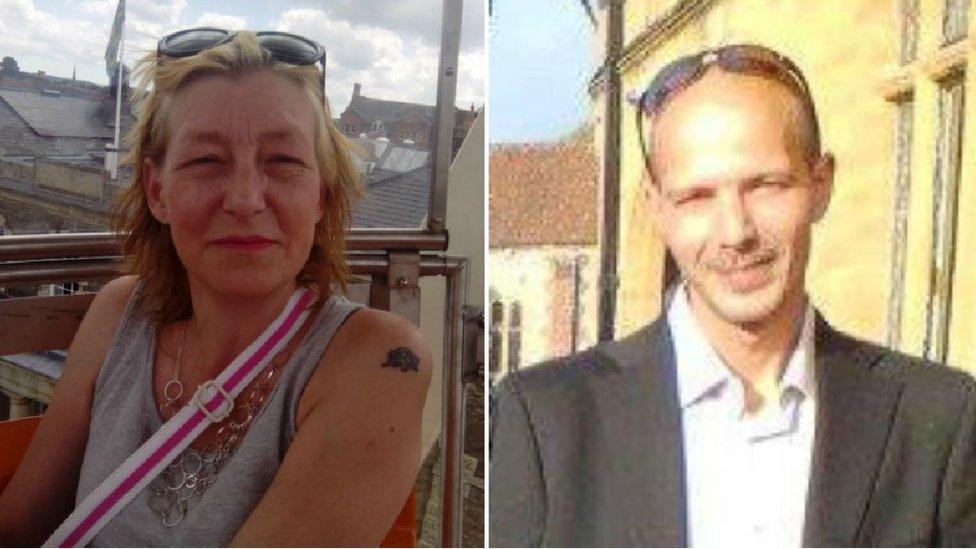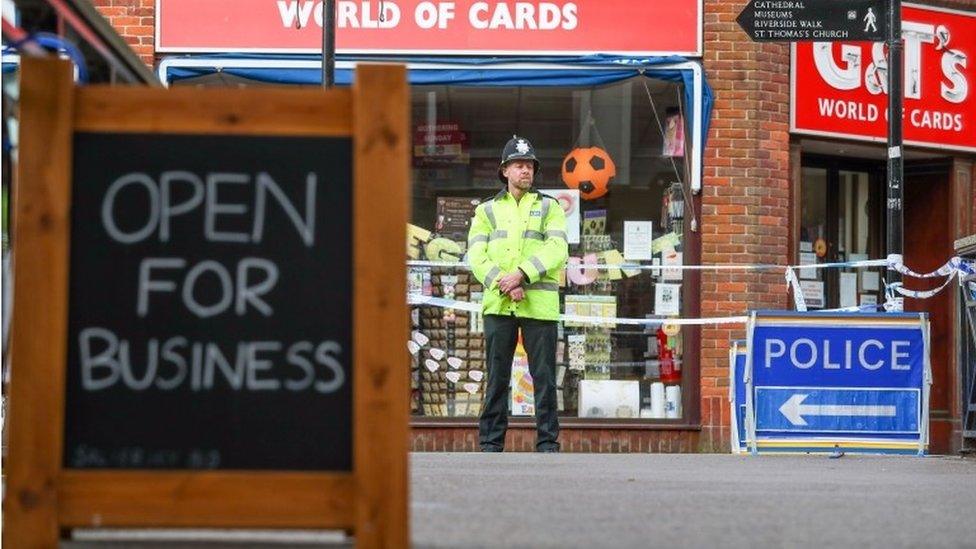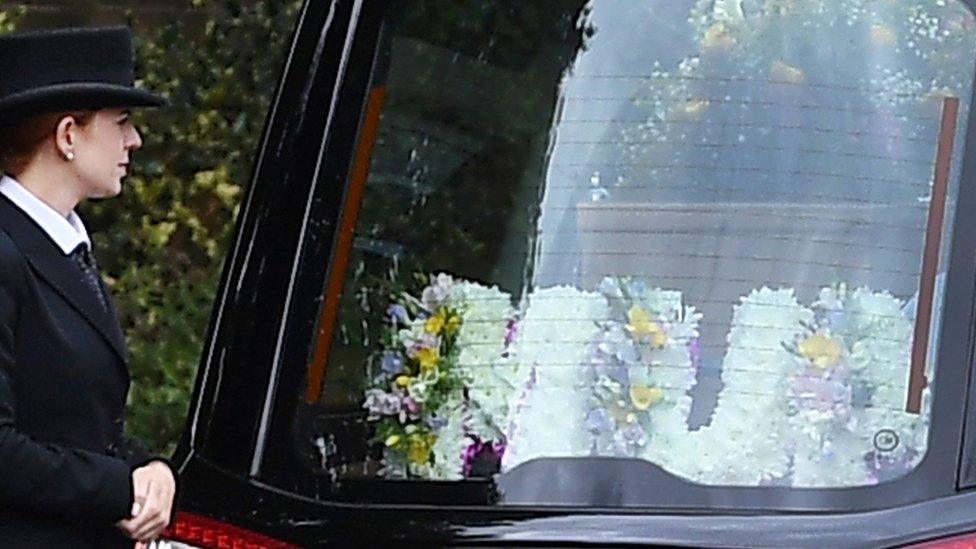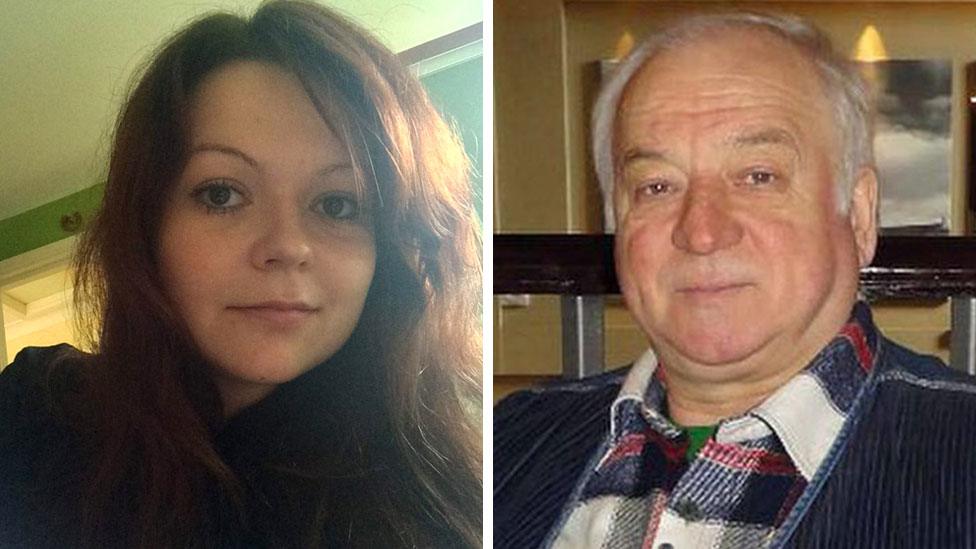Wiltshire Police's Novichok poisonings bill 'more than £10m'
- Published

In the second incident, Dawn Sturgess and partner Charlie Rowley, were exposed to Novichok in Amesbury
Two nerve agent poisonings in Wiltshire have cost police more than £10m, according to the region's Police and Crime Commissioner (PCC).
Former Russian spy Sergei Skripal and his daughter Yulia were poisoned by Novichok in Salisbury on 4 March.
Then Dawn Sturgess died after she and her partner Charlie Rowley were exposed to the nerve agent in July.
PCC Angus Macpherson said he "fully expects" the costs of policing both operations to be met by the government.
He said it was "unimaginable" Wiltshire Police had had to deal with two "unparalleled incidents" in such a short space of time and the force had "endured significant costs".
Mr Macpherson projected more than £7m of the total bill will cover the cost of extra police officers which came from 40 other forces, with more than £1.3m spent on overtime for officers and staff.
The force had to cancel officer rest days and put annual leave requests on hold to deal with the incidents and also brought in private security to guard cordons.

Extra police officers from 40 other forces have assisted in policing both incidents
The force has so far received £4.1m from the government since the first poisoning in March.
Mr Macpherson said he was in "frequent contact" with ministers, and promised to ensure local policing "is not affected by the financial implications of these high profile and complex major incidents".
Chief Constable Kier Pritchard said: "Our mutual aid arrangements mean that other frontline policing duties have remained unaffected in Wiltshire despite us dealing with two internationally significant incidents in just four months."
Ms Sturgess and Mr Rowley fell ill at a house in Amesbury, about eight miles from Salisbury.
Police are investigating a possible link to the case of Mr Skripal and his daughter, who were poisoned with the same substance in Salisbury in March.
The government has said Russia is behind the attack but Moscow denies any involvement.
- Published2 August 2018

- Published1 August 2018

- Published30 July 2018

- Published11 July 2018

- Published4 June 2018
